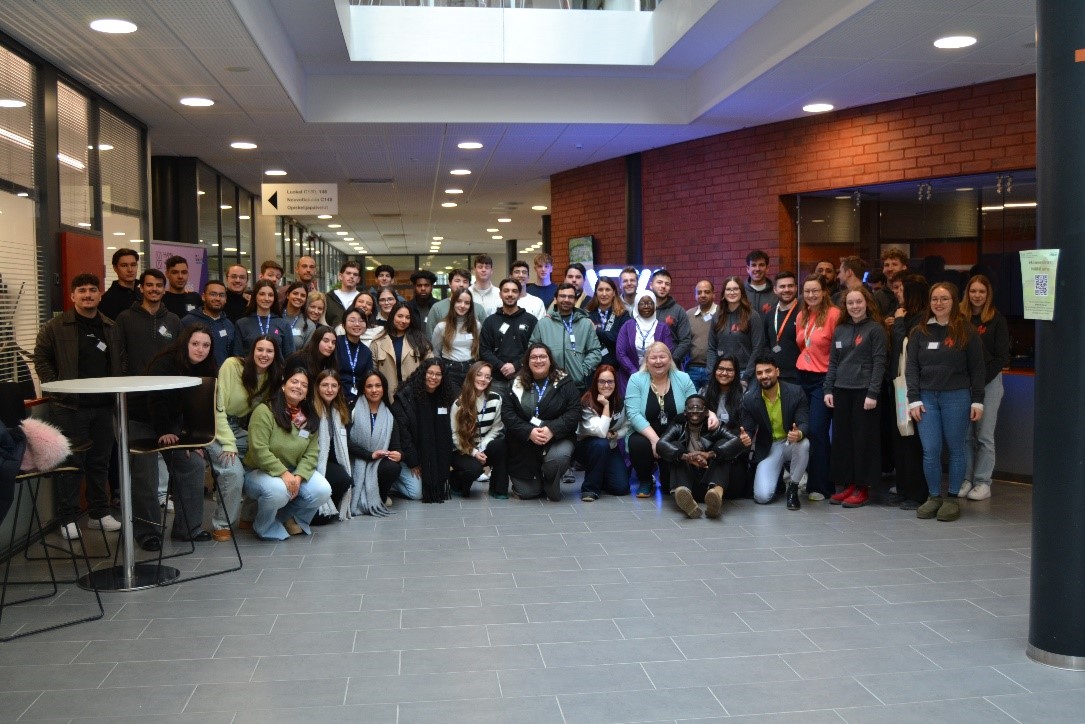We live in an era where sustainability and ethical practices have become paramount concerns for businesses worldwide. Zakaria (2025) highlights how the prioritization of ethical business practices and sustainability frameworks have shaped the competitive advantages of current businesses. Many companies have to deal with damaged reputations, penalties for deviations from alignment with regulation, or even consumer backlash if there is no transparency on sustainable practices. Authenticity and ethical engagement have been proven to foster brand loyalty, while strategies for corporate citizenship integration distinguish businesses from their competitors. Because of this, integrating sustainability and ethics into business models provides competitive advantages also in terms of innovation and market positioning. Indeed, strong reputation and sustainable management practices are crucial factors of market success, also for attracting quality investments (Agu et al., 2024; Esan et al., 2024; Nagiah & Mohd Suki, 2024).
Thus, the Erasmus+ programme CSR within the Supply Chain – The Responsible Route took its turn in forging a mindset change for future leaders, so that they would be ready to adjust business approaches for deeper sustainable impact. Hosted by Häme University of Applied Sciences (HAMK), with the support of 4 other partner universities (Howest in Belgium, Santarem in Portugal, NHL Stenden in Netherlands, Leiria in Portugal, and Ludwigshafen in Germany), this initiative brought together 53 students and 7 teachers to explore how sustainable practices and adequate corporate social responsibility (CSR) can transform global supply chains.
A Hybrid Learning Experience
The programme commenced with two online sessions in February and March 2025, featuring guest lectures by industry professionals who shared expert insights into contemporary supply chain practices and their related challenges and development efforts. The online sessions also included academic lectures on CSR, building a strong theoretical foundation for the participants. In the sessions, the students actively engaged with the speakers, posing considered questions and initiating discussions that bridged academic learning with real-world situations. During the online phase, the students were then organized into international teams where they began researching the CSR practices of companies selected for the exercise. After this, the students prepared their preliminary findings for presentations before the upcoming on-site week, laying the crucial groundwork for the next phase during the intensive week.
Intensive Week: Translating Theory into Practice
The core of the programme took place during an intensive week at HAMK’s Hämeenlinna University Centre in March 2025, where collaborative student work merged seamlessly with targeted academic instruction. The syllabus addressed essential themes, such as supply chain values, cultural sensitivity in international business, critical thinking frameworks, ethical decision-making processes, and stakeholder engagement theories.
Central to this phase was the application of Design Thinking methodologies, which enabled student teams to systematically analyse existing CSR strategies and develop evidence-based improvement proposals for their assigned companies. Design Thinking is an approach to innovation and problem-solving that is rooted in creativity and value creation. This human-centred approach challenges assumptions, redefines alternative strategies, and involves experimentation (Auernhammer & Roth, 2021; Dam & Siang, 2021). In addition to this, it has been proven to support entrepreneurial alertness, creativity enhancement, and to increase the confidence of participants and development of twenty-first century skills (Pratomo & Vardani, 2021; Mayer & Schwemmle, 2024).
Using the Design Thinking methodologies, each team synthesized their research process, findings, and recommendations into comprehensive visual presentations. The designed prototypes were then exhibited to external stakeholders, creating an authentic feedback loop that significantly enhanced the educational experience.
Throughout the intensive week, the students also benefited from guidance provided by lecturers from all the participating institutions, ensuring exposure to diverse academic perspectives and methodological approaches.
Celebrating Innovation: The CSR Fair
The programme culminated into a CSR Fair where student teams presented their work to peers, faculty, and external guests. The event featured a public voting booth, allowing attendees to select a winning team based on the quality, innovation, and practical applicability of their presentation. In this way, the fair served as a platform for the students to showcase their learning, receive recognition, and engage with a broader audience.
Student Reflections and Learning Outcomes
Comprehensive feedback from the participants revealed they had reached several significant learning objectives. Particularly, the students valued the experience of collaborating within international and interdisciplinary teams, which enhanced their cultural competence and communication skills. The programme also deepened their understanding of the inherent complexities and systemic challenges within sustainable supply chain management, while emphasizing the transformative potential of well-implemented CSR initiatives.
The students showed improved understanding of how advancements in technology, supplier performance, the growing importance of sustainability, and the impact of globalization and its related uncertainties all affect the complexity of supply chain management. The more complex a supply chain is, the more its operational performance is affected by these factors. However, at the same time these factors also have a positive effect on innovation and financial performance in these areas of business. The programme encouraged students to see how the dimensions and characteristics of such complex operating systems must lead to adopting more holistic views and integrated concepts for managing these businesses. Indeed, this is crucial as such changes can help connect and influence relationships in the buyer-supplier networks (Ateş et al., 2022).
Through integration of circular economy and by taking into account the requirements of implementing industry 4.0 – that is, advanced analytics, automation and manufacturing – in the proposed prototypes, the participants explored enhanced supply chain networks, and at the same time analysed drivers, barriers and dynamics of the current companies’ operations. Additionally, the students highlighted the benefits of experiential learning and real-time stakeholder feedback that was received from the participating audience. Such real-time stakeholder feedback follows the core principles of design-based education that drive pedagogical innovation within HAMK’s educational environment.
The pedagogical development of design-based education is focused on integrating collaboration with companies into course design. This helps the students to learn solving business challenges through multidisciplinary cooperation, and using design-based education methods also enhances the students’ innovative and creative skills. In this process, co-creation and experimentation support cross-sectoral collaboration (HAMK, 2025; Joore et al., 2022). This student-centred approach, emphasizing practical application and iterative improvement, created lasting impressions on all participants and showed the effectiveness of collaborative, international educational models.
Looking Ahead: Sustainable Impact and Future Development
The insights and outcomes generated through the CSR within the Supply Chain – The Responsible Route programme continue to inform the development of new educational initiatives and industry partnerships. This annual programme ensures that the knowledge created through this collaboration serves as a foundation for enhancing future international programmes, with each new cohort of students benefiting from these proven pedagogical approaches and industry connections.
Overall, this programme shows how international collaboration in education can effectively address global challenges while preparing students to become responsible leaders in an increasingly interconnected world. The success of this initiative underscores the value of combining theoretical rigor with practical application, supported by meaningful industry engagement and cross-cultural collaboration.
References
- Agu, E. E., Iyelolu, T. V., Idemudia, C., & Ijomah, T. I. (2024). Exploring the relationship between sustainable business practices and increased brand loyalty. International Journal of Management & Entrepreneurship Research, 6(8), 2463-2475.
- Akın Ateş, M., Suurmond, R., Luzzini, D., & Krause, D. (2022). Order from chaos: a meta‐analysis of supply chain complexity and firm performance. Journal of Supply Chain Management, 58(1), 3-30.
- Auernhammer, J., & Roth, B. (2021). The origin and evolution of Stanford University’s design thinking: From product design to design thinking in innovation management. Journal of Product innovation management, 38(6), 623-644.
- Esan, O., Ajayi, F. A., & Olawale, O. (2024). Supply chain integrating sustainability and ethics: Strategies for modern supply chain management. World Journal of Advanced Research and Reviews, 22(1), 1930-1953.
- HAMK. (2025). Design-based education (DBE). Retrieved on 12.09.2025 from: https://www.hamk.fi/en/about-hamk/pedagogical-research-and-development/design-based-education-dbe/
- Interaction Design Foundation, Dam, R. F., & Siang, T. Y. (2021, December). What is design thinking and why is it so popular?.
- Joore, P., Björklund, T., Thong, C., & Zancul, E. (2022). Co-creating the future through design-based education in innovation hubs. CERN IdeaSquare Journal of Experimental Innovation, 6(2), 1-3.
- Lu, H., Zhao, G., & Liu, S. (2024). Integrating circular economy and Industry 4.0 for sustainable supply chain management: a dynamic capability view. Production Planning & Control, 35(2), 170-186.
- Mayer, S. & Schwemmle, M. (2024). The impact of design thinking and its underlying theoretical mechanisms: A review of the literature. Wiley CIM, Volume34, Issue 1, Pages 78-11, https://doi.org/10.1111/caim.12626
- Pratomo, L. C., & Wardani, D. K. (2021). The effectiveness of design thinking in improving student creativity skills and entrepreneurial alertness. International Journal of Instruction, 14(4), 695-712. Zakaria, Z. (2025). Evaluation of Ethical Dilemmas and Business Sustainability in Maintaining a Company’s Reputation in Global Markets. Paradoks: Jurnal Ilmu Ekonomi, 8(3), 837-851.
Authors


